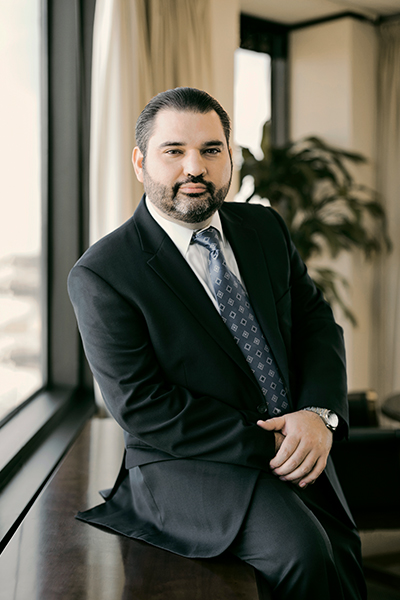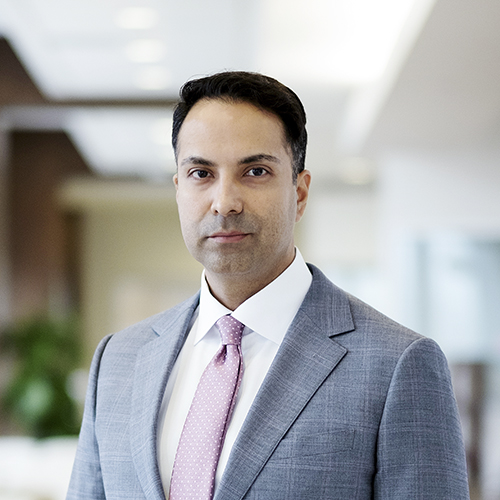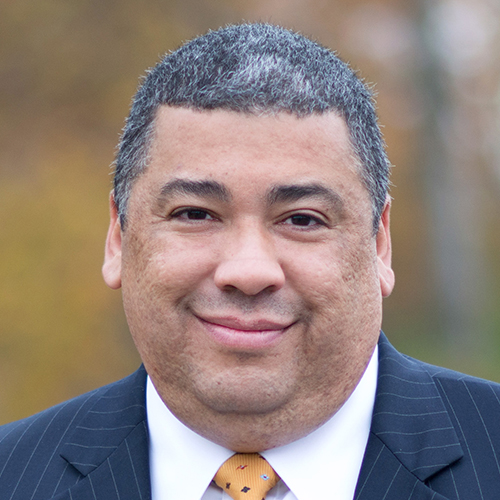|
Getting your Trinity Audio player ready...
|

Growing up in Baytown, Texas, Carlos Tamez of Fugro had a history teacher who recognized something in him that he didn’t see in himself.
“She said I’d make a good attorney and for whatever reason,” Tamez says. “That stuck with me.”
Well, she was right. Tamez is now the regional head of legal in North and South America for Fugro, a leader in integrated geotechnical, survey, subsea, and geoscience services.
Fugro employs more than ten thousand highly skilled people in sixty countries, and Tamez says its engineers use some of the most cutting-edge technology that exists. Tamez calls all of this the “global implication.” He means that the depth and breadth of Fugro’s reach adds a layer of complexity to all of the legal work he does.
Depending on where business emerges—whether it’s the Middle East, Africa, or Asia—international sanctions, export controls, and legal regimes vary wildly. This requires the company to have the ability to not only anticipate but also to navigate additional layers of challenges and risks. Leading during challenging circumstances and unforeseen conditions is something Tamez has been doing since he was a kid, which equipped him with a special skill set that peers at his level are less likely to have, he says.
Tamez is the youngest of three boys in his family and the first to go to college. He is also a first-generation American who, as a child, helped his Mexican immigrant parents navigate the unfamiliar culture of the United States. Tamez contends that his background is untraditional given his line of work. He also says it gave him skills he needed to succeed.
“When I was growing up, going to college wasn’t something that seemed like a possibility,” Tamez says. “The idea seemed very remote, given where we were in our lives at the time.”
After high school, Tamez worked in construction to make ends meet and soon decided to pursue higher education by attending a local community college. Not entirely sure what he wanted to study, his history teacher’s suggestion rang in his ears when he saw that the school offered a paralegal program. After obtaining his two-year degree, his path was set. He worked as a paralegal for a few years before earning his bachelor’s degree just a few months shy of his twenty-seventh birthday. Tamez eventually obtained his law degree from the University of Texas Law School.
“I had to chip away at my education, and then when I finally graduated, it was in a pretty lousy legal market,” Tamez says. “I was definitely scrappy, but I hope whoever hears my story understands the big picture, which is that someone from a different background or untraditional path can still make a great career for themselves.”
Tamez asserts that everyone is born with some leadership qualities, but his were definitely honed over time, starting in childhood. Tamez can still remember being thirteen and helping his parents figure out how to buy and sell a home. At fourteen, he helped his father settle a personal injury insurance claim from a car accident.
“I had to chip away at my education, and then when I finally graduated, it was in a pretty lousy legal market. I was definitely scrappy, but I hope whoever hears my story understands the big picture, which is that someone from a different background or untraditional path can still make a great career for themselves.”
“I was tossed into situations that demanded maturity,” he says. “It might have felt overwhelming at the time, but it definitely helped shape my leadership qualities and style.”
Now, Tamez enjoys leading his team of in-house lawyers. Before joining Fugro, when he was just one of a handful of attorneys at a firm, he disliked how rarely he saw the fruits of his labor. That’s not the case anymore. Tamez now regularly supervises teams that focus on emerging concerns. And whether the team is addressing an issue or resolving a dispute, Tamez says he derives a great deal of satisfaction from the tangible accomplishments he and his team achieve.
“I’m proud of the in-house lawyers on our team, and I believe the reason they’re so effective is that they fully understand the business they’re in,” Tamez says. “If your company offers ten or fifteen different service lines, it can get complicated because you need to be able to understand—to a reasonable degree—what all of them do. You can’t effectively review a contract for a service line without knowing the kind of work they do. You can’t analyze the risks inherent in business without understanding it. We have these kinds of highly effective people on our team.”
Knowing the business is good advice, but Tamez says another piece of advice would have served him well as a young person entering his field: an in-house lawyer working for a company is very different than working at an attorney in a law firm. Although that might seem obvious enough, Tamez says he was slow to realize that in his current role.
“The key isn’t necessarily the brilliance of your legal arguments. In this role, it’s really about being able to deliver solutions clients can use,” Tamez says. “It’s a different skill set, and it might take a minute to get used to. You have to think quickly on your feet and realize there’s an intersection between legal and commercial. The advice you’re providing may not be 100 percent legal in nature. Sometimes you’re bringing logical reasoning skills to the table. Sometimes helping business people think through their problems logically is more valuable than a well-researched legal memo.”

